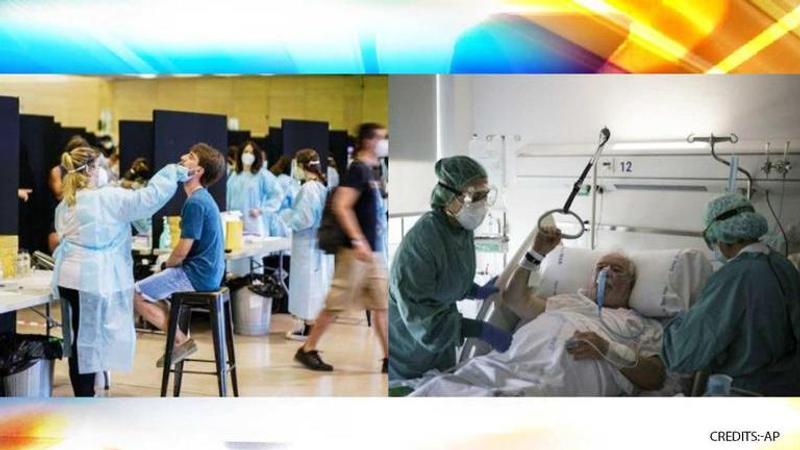Published 13:26 IST, July 11th 2021
Singapore: One in 10 COVID recovered patients suffer from persistent symptoms, says Study
These recovered patients are described as the "long haulers” and their condition is termed as the post-COVID-19 syndrome or "long COVID-19”

Months after their recovery, at least one in 10 patients of COVID-19 had persistent symptoms most commonly a lingering cough and shortness of breath in a condition described as the "long COVID,” a new study published on July 10 has found. Scientists of the National Centre for Infectious Diseases (NCID) conducted a survey on the recovered COVID-19 patients in Singapore and discovered that nearly 6 months after the infections, many patients were in for a long haul as they struggled with fatigue, dizziness, and insomnia, which, in some cases, were not so frequently observed. There were, however, signs of the elevated inflammatory markers irrespective of whether or not the patient fought a severe or a mild case of the COVID-19 respiratory ailment, a report carried by The Strait Times referencing the new study stated.
According to the WHO, most people that contract the Severe Acute Respiratory Syndrome or SARS-CoV-2 will take an incubation period of 10 to 14 days to recover fully. Some patients recover completely within a few weeks time. Although the new study sheds light on the persistent symptoms long after the initial recovery among some patients that may have fought a severe COVID-19 infection. These recovered patients are described as the "long haulers” and their condition is termed as the post-COVID-19 syndrome or "long COVID-19”. The symptoms, in this case, remain for more than four weeks. Often people with co-morbidities are more likely to experience lingering COVID-19 symptoms such as chest pain, fatigue, shortness of breath, muscle pain and memory issues, anxiety or depression, or dizziness several months after fighting the disease.
In the new study, researchers found that the recovered COVID-19 patients in Singapore had fluctuated protein levels in the blood, which caused conditions that affected their circulatory system. This, in turn, was a risk for the other cardiovascular disease. Sometimes COVID-19 symptoms remained in the body for more than 20 days to up to 45 days and the patient developed post-COVID complications. Scientists called the long COVID “a serious concern” adding that it added to the hidden toll of the pandemic as such patients mostly went undetected.
The study analyzed the patients in at least three public hospitals where the NCID monitored them 6 months post-recovery. As many as 288 patients were recruited for the study, including 183 outpatient follow-ups last year in mid-January, 2020. As per the report, the study aimed to study the “long term impact of COVID-19, up to two years post-infection, and also to understand how any protective immunity from infection evolves over time.”
'Virus actually caused wider damage,' says NCID consultant
The paper quoted a consultant in NCID, Dr. Barnaby Young, as saying that looking at the recovered cases, who passed on from acute COVID-19, the lungs of the patients were the major organ affected, the virus actually caused wider damage. This included the damage to the heart as well as the inner lining of small blood vessels. The sars-CoV-2 virus affected the blood vessels in a way that it destroyed particularly the small vessels causing blockage of the blood supply and bleeding in some cases. These symptoms could be of varying duration and very little is known from the research about the COVID-long haulers.
The NCID is planning to conduct a separate study on the long-term inflammatory consequences of the coronavirus such as the blood clots and the lowered immune response due to the possibly the residual viral fragments. Scientists in earlier research found that some recovered patients also reported a multisystem inflammatory syndrome as well lasting damage to the heart muscle or the tiny air sacs (alveoli) in the lungs. There was also an increased risk of developing Parkinson's disease and Alzheimer's disease in later stages as COVID-19 ailment caused strokes, seizures, and Guillain-Barre syndrome in some severe cases of the infection.
Updated 13:26 IST, July 11th 2021



